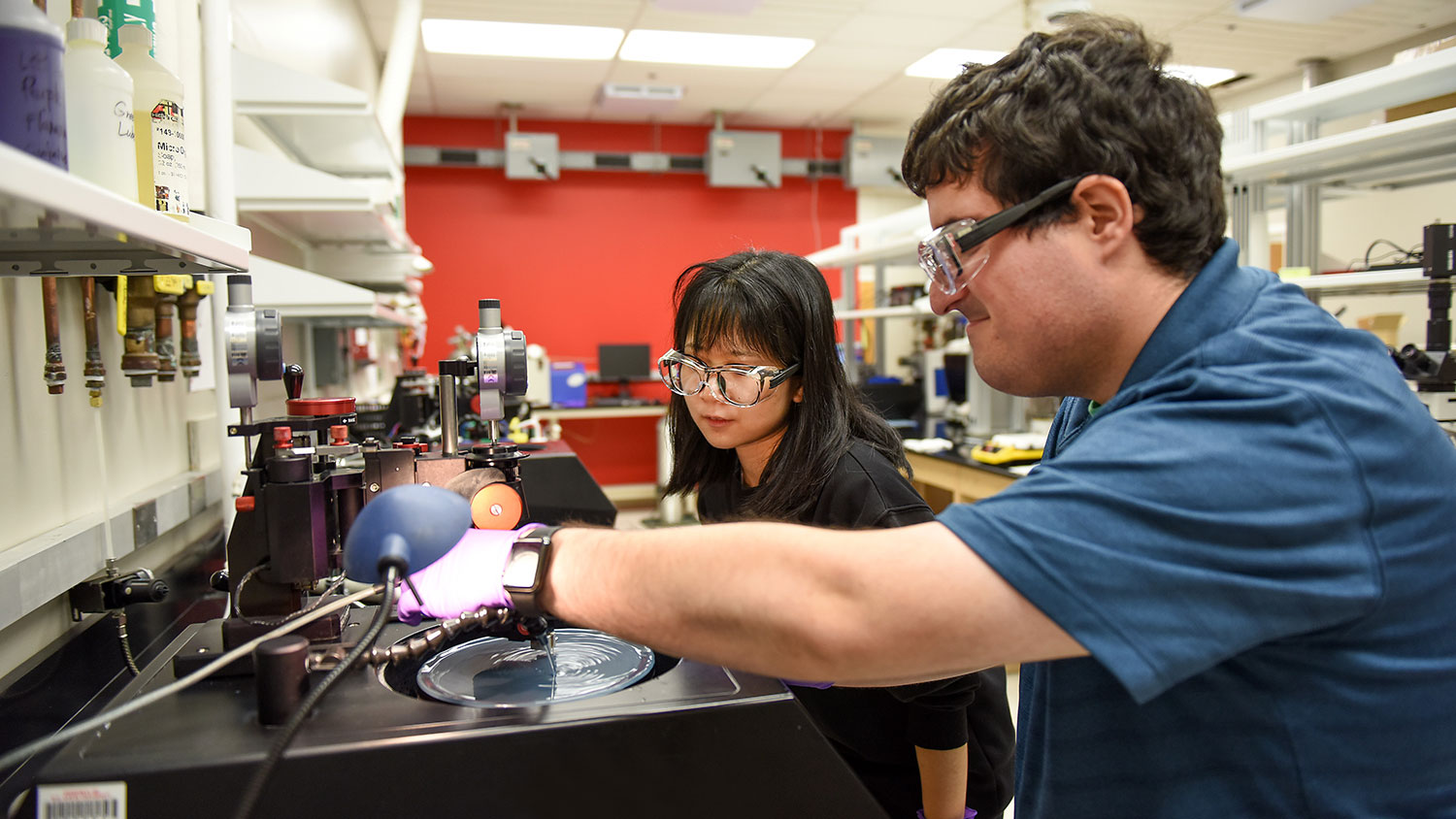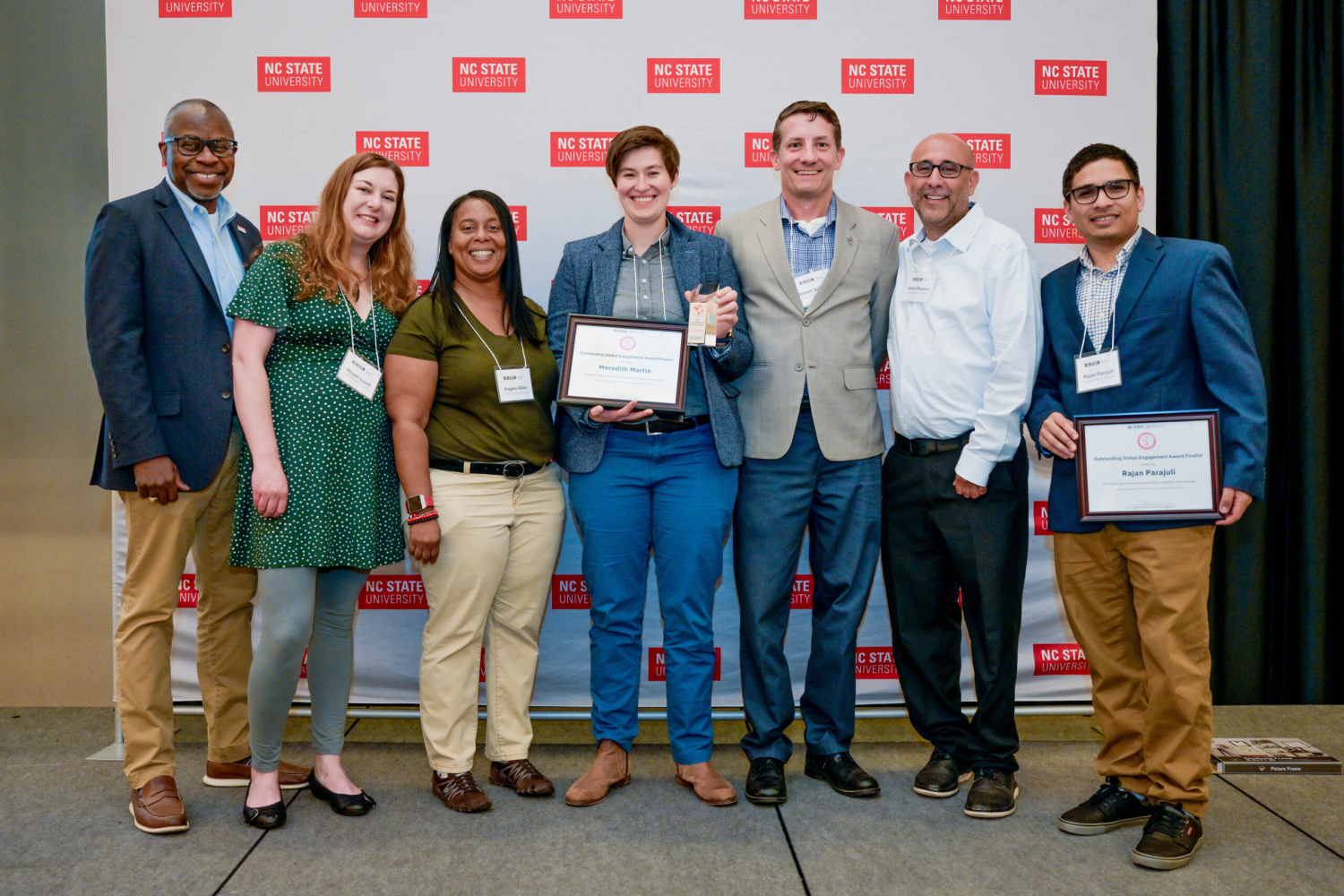Funding renewal will continue nanotechnology work in the Research Triangle for five more years

The Research Triangle Nanotechnology Network (RTNN), a partnership between three local universities that drives research and education in the areas of nanoscale engineering, science and technology, is one of 16 such sites nationwide that will benefit from five more years of funding from the National Science Foundation (NSF).
NSF will invest a total of $84 million over five years in a renewal of the National Nanotechnology Coordinated Infrastructure (NNCI). NSF established NNCI in 2015 with an $81 million investment.
The NNCI’s 16 sites and coordinating office provide researchers from academia, large and small businesses, and government with access to leading-edge fabrication and characterization tools, instrumentation and expertise. RTNN brings together facilities and expertise from North Carolina State University, the University of North Carolina at Chapel Hill and Duke University.
NSF has renewed funding of $5.5 million for the RTNN over five years.
“The renewal award reinforces the sustained high quality and impact of the nanotechnology facilities, research and educational programs in the Research Triangle region of North Carolina,” said Dr. Jacob Jones, Distinguished Professor in the Department of Materials Science and Engineering, director of RTNN and NC State site director. “It is important to our universities because it allows us to continue supporting exciting nanotechnology programs that serve both local and national interests.”
RTNN’s core facilities are the Analytical Instrumentation Facility and Nanofabrication Facility at NC State, the Chapel Hill Analytical and Nanofabrication Laboratory at UNC and the Shared Materials Instrumentation Facility at Duke. Through these core facilities and five affiliated facilities on the three campuses, RTNN offers more than 40,000 square feet of laboratory space, more than 230 major fabrication and characterization tools and more than 65 technical staff members.
“In the next five years, the RTNN will continue the success of the first five but also broaden our impact outside the Triangle in our home state of North Carolina, as well as push our research boundaries into emerging areas of convergent science enabled by nanotechnology,” said Dr. James Cahoon, associate professor in the Department of Chemistry and UNC site director.
RTNN program highlights from the first five years include:
- Annually, more than 1,500 unique annual users accessed RTNN facilities for more than 61,000 hours of experimental time.
- Fifty community college faculty members from 21 institutions worked in RTNN facilities and developed new curriculum at RTNN’s annual educator workshop
- “Nanotechnology: A Maker’s Course,” a Coursera online course, enrolled more than 30,000 learners in more than 155 countries.
- RTNN’s Kickstarter program provided roughly 1,300 hours on nanotech tools to 75 non-traditional and new users.
- RTNN visited regional schools, libraries and museums to give more than 1,900 people training and hands-on experiences like operating a portable scanning electron microscope (SEM).
- Collectively, in-person programming reached more than 16,000 K-Gray participants with 6,400 engaged in hands-on programs within the facilities. Greater than 60 percent of participants were from underrepresented groups in STEM.
“This program has brought national acclaim and nanotechnology resources to our region,” said Dr. Nan Jokerst, the J. A. Jones Distinguished Professor of Electrical and Computer Engineering and Duke site director. “We’ve engaged in multiple innovative approaches with this program in the first five years, and we are tremendously pleased to continue our work with the renewal of this highly competitive grant.”
NNCI sites are in 15 states and involve 26 university and partner institutions across the nation. The new NSF awards range from $600,000 to $1.5 million per year for up to five years.
The NNCI coordinating office, operated by Georgia Tech, will continue to provide users with a unified entry point to the network’s overall capabilities, as well as tools and instrumentation. The office also shares best practices for national education and outreach programs across sites.
Funding for NNCI is provided by all NSF directorates and the agency’s Office of International Science and Engineering. NNCI is part of NSF’s investment in the National Nanotechnology Initiative.
- Categories:


